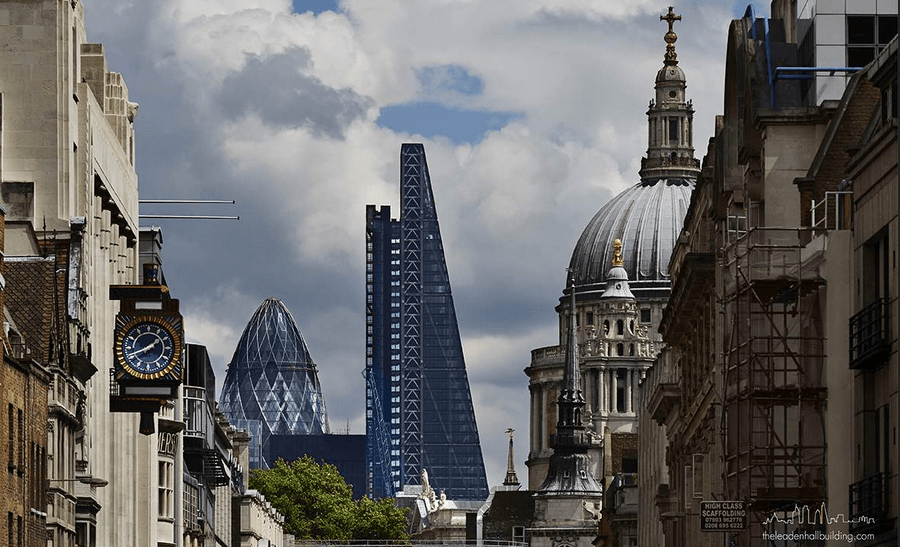
Affectionately referred to as the “Cheesegrater” one of London’s most iconic properties has changed hands for a whopping £1.15 billion. This will surprise many people especially when the most recent valuation, completed in September 2016, placed a value of just £915 million on the property. Since then we have seen concern and confusion regarding London’s position in the worldwide financial sector in light of the Brexit vote. So, how did owners British Land and Oxford Properties manage to obtain such a high price?
The Leadenhall Building
While often referred to as the “Cheesegreater” the official name of the property is The Leadenhall Building. This is one of London’s most iconic properties, with a height of 225 metres, situated in the heart of the business district and completed in 2014. The property has 46 floors and is one of the tallest buildings in London attracting relatively high rents compared to the rest of the market. In a short space of time the former owners have managed to create a very strong income stream which has obviously paid dividends with the sale price.
Chinese buyers
It will probably come as no surprise to learn that the property has been acquired by Chinese property investors in the shape of Cheung Chung-Kiu and his CC Land property vehicle. Chinese investors have been extremely active in the UK over the last year or so and while the deal still needs to be rubberstamped by CC Land shareholders, Cheung Chung-Kiu owns more than 50% making approval a foregone conclusion.
This comes hot on the heels of the group’s acquisition of Vodafone’s Paddington headquarters in January for a price of £290 million. There will likely be more transactions in the short to medium term with willing sellers emerging in London, due to the uncertainty surrounding Brexit, and willing buyers making themselves known from the Far East.
Currency considerations
When you start talking about billion pound property transactions a 20% currency swing does start to have an impact. This is perhaps one of the reasons why the Chinese buyers have been able to pay such a “full price” for the “Cheesegreater” – because of the currency premium?
There are growing concerns that some of London’s most iconic properties could be targeted by overseas investors looking to use the current window of opportunity as the currency awaits further details of the U.K.’s divorce from Europe. As we always look at UK property price transactions in sterling sometimes it is difficult to get a real angle on the exchange rate. Even though the currency has obviously helped the Chinese buyers it was interesting to see they paid well over the odds, or at least well over the last valuation, to secure the property.
Is London property back in vogue?
At this moment in time it looks as though overseas investors see more value in the London property market than their domestic counterparts. As we touched on above, the currency issue will have a serious impact upon investment decisions for overseas investors but even that aside there is concern and confusion in the UK. What would happen if the London financial sector was shut out of the European market? Would leading banks and financial groups jump ship to the likes of Germany and France?
Time will tell………

